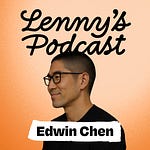Brought to you by:
• Eppo—Run reliable, impactful experiments
• CommandBar—AI-powered user assistance for modern products and impatient users
• The a16z Podcast—Featuring conversations with the founders and technologists shaping our future
—
Carole Robin spent over 20 years teaching the Stanford Graduate School of Business course Interpersonal Dynamics, affectionately known as “Touchy Feely.” After leaving Stanford, she founded a nonprofit called Leaders in Tech, which applies the Touchy Feely principles to help Silicon Valley executives build their leadership and interpersonal skills. Carole co-authored the popular book Connect: Building Exceptional Relationships with Family, Friends, and Colleagues, which shares key insights from her decades of teaching these courses. In our conversation, we discuss:
The benefits of building robust relationships, in life and work
The 15% rule, and how it will help you build better relationships
The power of vulnerability
Examples of how to practice vulnerability
Why mental models you build early in life hold you back later
The “three realities” and “the net”
The art of inquiry
Practical tips for avoiding defensiveness when getting feedback
The impact of long Covid on Carole’s life
Some takeaways:
When giving feedback, remember that in any interaction between two people, there are three realities:
Reality 1 includes their motives and intent
Reality 2 is what they say and do
Reality 3 is the impact of their behavior on you
Embrace the 15% rule: By pushing yourself just 15% beyond your current boundaries, you can create opportunities for growth and deepen connections with others. This approach allows you to gauge your comfort level and adjust gradually, avoiding overwhelming discomfort while still fostering meaningful progress.
You should address minor irritations (“pinches”) before they escalate into major conflicts (“crunches”). Early identification and resolution of pinches promotes honest relationships and minimizes the expected pain of a crunch.
When someone responds in a way you didn’t expect, ask them, “What did you hear me say?” Most of the time, the other person heard something incorrect. Follow up with “I’m glad I asked; let me try that again.”
When seeking to understand someone’s motives and intent, inquire genuinely without judgment. Avoid asking “why” questions, as they provoke defensiveness. Instead ask what, when, where, and how to gain insight into their perspective.
Don’t use phrases like “I feel that” or “I feel like,” as these often lead to statements rather than emotional expressions. Instead, use “I feel” followed by an actual feeling word. This simple change is more likely to result in a connection with the other person.
Frame failure as an AFOG (Another F*cking Opportunity for Growth). You are more likely to recover from failure if you invest energy into unpacking the lessons.
Listen now on Apple, Spotify, Overcast, and YouTube.
Where to find Carole Robin:
• LinkedIn: https://www.linkedin.com/in/carole-robin/
• Email: [email protected]
In this episode, we cover:
(00:00) Carole’s background
(05:17) The importance of building robust relationships
(10:20) The “Touchy Feely” course at Stanford
(13:29) An example of the in-class experience
(17:19) Leaders in Tech: developing interpersonal competence
(21:36) Progressive disclosure and the 15% rule
(24:28) Appropriate disclosure
(26:52) The power of vulnerability
(34:57) Admitting mistakes and sharing feelings
(37:08) Understanding mental models
(42:57) The “three realities” framework
(53:52) The power of feedback and personal change
(58:47) The art of inquiry
(01:03:27) How to get better at giving feedback
(01:07:47) Exercises and continued learning
(01:10:49) “Advice hinders relationships”
(01:16:49) Failure corner: AFOG
(01:20:30) Takeaways
(01:21:51) Lessons from long Covid
Referenced:
• How to Build Better Relationships: https://www.gsb.stanford.edu/insights/how-build-better-relationships
• Connect: Building Exceptional Relationships with Family, Friends, and Colleagues: https://www.amazon.com/Connect-Building-Exceptional-Relationships-Colleagues-ebook/dp/B0894279WZ
• Leaders in Tech: https://leadersintech.org/
• Leaders in Tech Fellows: https://leadersintech.org/learnaboutfellows
• Steve Jobs: https://www.forbes.com/profile/steve-jobs/
• Sheryl Sandberg on X: https://twitter.com/sherylsandberg
• Ursula Burns: https://www.forbes.com/profile/ursula-burns/
• Application for Leaders in Tech: https://leadersintech.org/programs-and-applications
• Vygotsky’s Zone of Proximal Development and Scaffolding Theory: https://www.simplypsychology.org/zone-of-proximal-development.html
• The Best Leaders Aren’t Afraid to Be Vulnerable: https://hbr.org/2022/07/the-best-leaders-arent-afraid-of-being-vulnerable
• The Surprising Benefits of Admitting Mistakes: 5 Ways to Build Intellectual Humility: https://www.forbes.com/sites/tracybrower/2021/12/29/the-surprising-benefits-of-admitting-mistakes-5-ways-to-build-intellectual-humility/
• How to Build Conflict Skills—The Pinch/Crunch Model: https://www.forbes.com/sites/hannahart/2023/12/15/how-to-build-conflict-skills-the-pinchcrunch-model/
• Slides mentioned (The Three Realities Framework | The 15% Rule | Feedback Guidelines): https://www.notion.so/pen-name/Carole-Robin-on-Lenny-s-Podcast-dc7159208e4242428f4b11ebc92285eb
• Mindset: The New Psychology of Success: https://www.amazon.com/Mindset-Psychology-Carol-S-Dweck/dp/0345472322
• Management Time: Who’s Got the Monkey?: https://hbr.org/1999/11/management-time-whos-got-the-monkey
• Long COVID: major findings, mechanisms and recommendations: https://www.nature.com/articles/s41579-022-00846-2
• Leadership, acceptance, and self-management: my journey with long COVID: https://www.linkedin.com/pulse/leadership-acceptance-self-management-my-journey-long-carole-robin/
Production and marketing by https://penname.co/. For inquiries about sponsoring the podcast, email [email protected].
Lenny may be an investor in the companies discussed.













